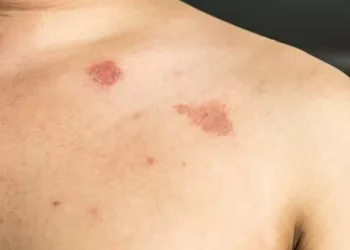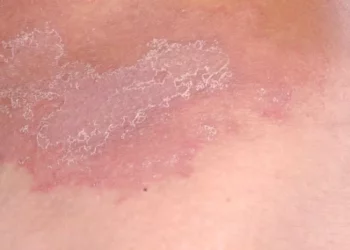Ringworm is a fungal infection that can affect both humans and animals, including dogs. Despite its name, ringworm is not caused by worms but by fungi that live on the skin, hair, and nails. This infection is contagious and can spread through direct contact with an infected animal, their environment, or contaminated objects. If your dog has been diagnosed with ringworm, it’s important to treat the infection promptly to prevent it from spreading and to help your pet recover quickly.
In this article, we will explore the different treatment options for ringworm in dogs, including medications, topical treatments, and natural remedies. Understanding how to properly treat ringworm in dogs can help alleviate your pet’s discomfort and promote a faster recovery.
What is Ringworm in Dogs?
Ringworm, or dermatophytosis, is a common fungal infection that affects the skin of dogs. It is caused by a variety of fungi, most commonly Microsporum canis, Trichophyton mentagrophytes, and Microsporum gypseum. These fungi thrive in warm, moist environments and can be found in soil, on infected animals, or on contaminated objects like bedding or grooming tools.
The symptoms of ringworm in dogs can vary but typically include:
- Circular patches of hair loss (alopecia)
- Red, scaly, and inflamed skin
- Itching and irritation
- Crusty or flaky skin
- Thickened skin or sores
Ringworm can affect any breed of dog, but puppies and older dogs with weakened immune systems are at higher risk. Additionally, ringworm can be spread to humans and other animals, so it’s important to take precautions when handling an infected dog.
How is Ringworm Diagnosed in Dogs?
Before beginning treatment, it’s crucial to get an accurate diagnosis. A veterinarian can diagnose ringworm through:
Physical examination: The vet will look for signs of hair loss, skin lesions, and other symptoms that suggest a fungal infection.
Wood’s lamp test: This test uses ultraviolet light to detect the presence of certain types of fungi on the skin. It is a quick, non-invasive diagnostic tool.
Microscopic examination: The vet may take a sample of the infected skin or hair and examine it under a microscope to identify fungal spores.
Fungal culture: A sample of skin or hair can be cultured in a lab to identify the specific fungus causing the infection.
Once diagnosed, treatment can begin to clear the infection.
Traditional Medications for Treating Ringworm in Dogs
There are several pharmaceutical options that veterinarians commonly prescribe to treat ringworm in dogs. These medications are typically either antifungal oral drugs or topical treatments. Here are the most common medications used for treating ringworm in dogs:
Antifungal Oral Medications
For more severe or widespread cases of ringworm, oral antifungal medications may be necessary. These medications help to kill the fungi both on the skin and within the body. The most common oral antifungals include:
Griseofulvin: This is one of the most commonly used oral medications for treating ringworm in dogs. It works by inhibiting fungal cell division and is effective against a variety of fungi. Griseofulvin can cause side effects such as nausea or liver problems, so it’s important for your vet to monitor your dog’s health during treatment.
Itraconazole: Itraconazole is a broad-spectrum antifungal drug that is often used for ringworm. It works by preventing fungi from growing and spreading. This medication is usually well tolerated by dogs, but some may experience gastrointestinal issues like vomiting or diarrhea.
Terbinafine: Terbinafine is another oral antifungal medication that may be prescribed for ringworm. It works by interfering with the fungus’s cell membrane. Like other antifungal medications, it may cause mild side effects like upset stomach.
Oral antifungal medications typically need to be administered for several weeks to ensure the infection is completely eradicated. It’s important to follow the vet’s instructions carefully and not to stop treatment early, even if your dog seems to be improving.
Topical Antifungal Treatments
Topical treatments are often used in combination with oral medications or as a stand-alone treatment for mild cases of ringworm. These treatments are applied directly to the affected area and help to kill the fungi on the surface of the skin. Common topical antifungal treatments include:
Antifungal shampoos: These shampoos contain ingredients like chlorhexidine or miconazole, which can help to treat ringworm. Your dog will need to be bathed with the shampoo according to your vet’s instructions, usually once or twice a week until the infection clears up.
Topical creams or ointments: Creams and ointments containing antifungal agents such as miconazole, clotrimazole, or ketoconazole are applied directly to the infected areas. These can be effective for small, localized infections.
Medicated powders or sprays: In some cases, powders or sprays containing antifungal ingredients may be recommended. These are easy to apply and help to treat both the skin and hair affected by the infection.
When using topical treatments, it’s important to ensure that your dog does not lick the treated area, as this can lead to ingestion of the medication. Using an Elizabethan collar (e-collar) can help prevent your dog from licking the affected area.
Natural and Home Remedies for Ringworm in Dogs
While traditional medications are the most effective way to treat ringworm, some pet owners prefer to explore natural remedies or use them in conjunction with prescribed treatments. It’s important to note that natural remedies may not be as effective as pharmaceuticals and should not replace professional veterinary care.
Here are a few natural remedies that may help manage mild cases of ringworm:
Apple Cider Vinegar
Apple cider vinegar (ACV) is known for its antifungal and antibacterial properties. Some pet owners use it as a topical treatment for ringworm. ACV can help to balance the pH of the skin and prevent the growth of fungi. To use ACV, dilute it with water (about 50% ACV and 50% water) and apply it gently to the affected area with a cotton ball or soft cloth. Avoid using undiluted ACV, as it can cause irritation.
Coconut Oil
Coconut oil contains lauric acid, which has antifungal properties that may help in treating fungal infections like ringworm. It can also help soothe irritated skin and reduce inflammation. Simply apply a thin layer of coconut oil to the affected areas two to three times per day. Make sure to choose organic, unrefined coconut oil for the best results.
Aloe Vera
Aloe vera is another natural remedy that can help soothe the skin and provide antifungal benefits. You can use fresh aloe vera gel or aloe vera-based products that do not contain alcohol or other harsh ingredients. Gently apply the gel to the affected areas for relief from itching and inflammation.
Tea Tree Oil
Tea tree oil has antifungal properties and can be used as a topical treatment for ringworm. However, tea tree oil should be used with caution, as it can be toxic to dogs if ingested or used in excessive amounts. Always dilute tea tree oil with a carrier oil, such as coconut oil, before applying it to your dog’s skin. A ratio of 1 drop of tea tree oil to 1 tablespoon of carrier oil is recommended.
Managing the Environment to Prevent Spread
In addition to treating your dog’s ringworm, it’s important to address the environment to prevent the infection from spreading. Fungal spores can survive in the environment for weeks or even months, so cleaning your dog’s living area is essential. Here are some steps to help manage the environment:
Wash your dog’s bedding and toys regularly with hot water and a disinfectant.
Vacuum your home frequently, especially in areas where your dog spends a lot of time.
Disinfect surfaces that your dog comes into contact with, such as furniture, floors, and grooming tools.
Isolate your infected dog from other pets and family members to prevent the infection from spreading.
Conclusion
Ringworm in dogs is a treatable condition, and with the right care, your pet can make a full recovery. Treatment usually involves a combination of oral and topical antifungal medications, and in some cases, natural remedies may offer additional support. Always follow your vet’s advice and continue treatment until the infection is completely cleared. By managing your dog’s condition and maintaining a clean environment, you can help ensure that ringworm does not spread and that your dog stays healthy and comfortable.
Related topics



























